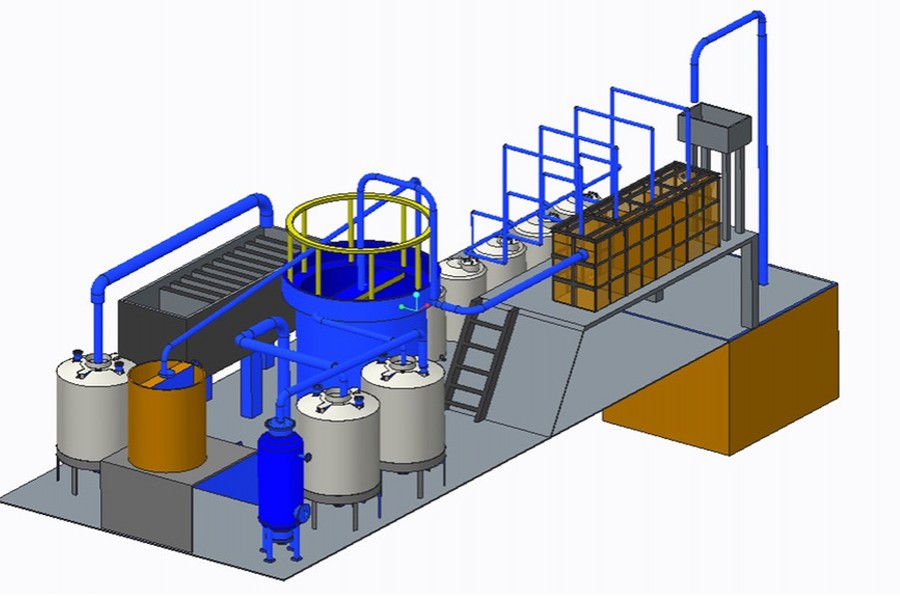The government has initiated a move to set up Effluent Treatment Plants (ETPs) at 14 state-owned sugar mills across the country in a bid to ensure a healthy environment for the biodiversity and people living adjacent to the sugar mills areas.
"The Planning Commission has considered a draft project to this end prepared by the Ministry of Industries and the project is awaiting nod of the Ecnec in its next meeting tomorrow (Tuesday),"said a senior Planning Commission official.
The official said Bangladesh Sugar and Food Industries Corporation (BSFIC) under the Ministry of Industries will implement the project titled 'Installation of ETPs at 14 sugar mills' with an estimated outlay of Tk 850 million (Tk 85.10 crore) to be entirely borne from the state exchequer. The project is expected to be completed by June 2020.
The Planning Commission official said the project also aims to protect the environment from the non-bio degradable heavy molecules, protect the environment adjacent to the sugar mills from the unwarranted bad odour of mills waste, and thus protect the farmland, waterbodies and irrigation water of those areas from the heavy waste derived from the sugar mills.
The 14 state-owned sugar mills where ETPS will be set up are Rangpur Sugar Mills Ltd, Thakurgaon Sugar Mills Ltd, Setabganj Sugar Mills Ltd, Shyampur Sugar Mills Limited, Joypurhat Sugar Mills Ltd, Rajshahi Sugar Mills Ltd, North Bengal Sugar Mills Ltd, Pabna Sugar Mills Ltd, Kushtia Sugar Mills Ltd, Carew and Co (Bangladesh) Limited, Mobarakganj Sugar Mills Ltd, Faridpur Sugar Mills Ltd, Zeal Bangla Sugar Mills Limited and Panchagarh Sugar Mills Ltd.
According to the Draft Project Proposal (DPP), the annual average production capacity of the country's 15 state-owned sugar mills is 2.10 lakh metric tons and these sugar mills also produces molasses, press mud, bagasse and environment polluting liquid waste as by product which also pour into the nearby farmland and water bodies.
These wastes contain high-level of Biological Oxygen Demand (BOD) and Chemical Oxygen Demand (COD) which reduces the level of oxygen in the water and also emits harmful hydrogen sulphide.
"As a result, water in the nearby waterbodies become black due to iron and other dissolved salt and that also become not usable for household works and for drinking. Side by side, this also incurs irreparable loss to the waterbodies, farmland, health, agriculture and environment," said the DPP.
Another official at the Ministry of Industries told the news agency that around 30,000 to 40,000 liters of waste is emitted on average for producing one metric ton of sugar and it also requires huge amount of water to refine those sugar. As a result, it often put pressure on the underground water-level.
"Under the present circumstances, there is a need to install ETPs in those sugar mills and according to the Environment Conservation Rules-1997, these sugar mills and distilleries have been classified into red category while emphasis has been given to install ETPs in those sugar mills," added the official, reports BSS.


